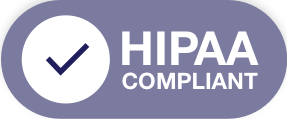Information

Reviewed by Dr Roy Kedem, MD
Information last reviewed 04/12/21
About
What is HIV?
HIV (human immunodeficiency virus) is a virus that damages important cells of the immune system. This affects the body’s ability to fight disease and infection, making it easier to get sick. Currently, there is no cure for HIV, but with proper treatment, it can be managed. People with HIV can live long and healthy lives. Without proper treatment however, HIV can lead to AIDS.
HIV vs. AIDS
If not treated properly, HIV can lead to Acquired Immune Deficiency Syndrome (AIDS). AIDS is the most advanced stage of HIV and is defined by a weakened immune system that can no longer fight off serious infections. AIDS can also make you more susceptible to developing certain cancers such as lymphoma.
Who is at risk for HIV?
Anyone can contract HIV. However, individuals most at risk include gay or bisexual men, transgender women who have sex with men and injection drug users. At present, African americans and Hispanic americans are at greater risk of contracting HIV compared to other ethnicities.
What is PrEP?
Pre-exposure prophylaxis (PrEP) is a preventative medication regimen for people who do not have HIV but are at high risk of contracting it. When taken daily, PrEP medications can reduce the risk of contracting HIV through sex by 99%. To be effective, the medication has to be taken every day.
Causes
How is HIV transmitted?
In the US, HIV is transmitted most often through anal or vaginal sex or by sharing needles used for injecting drugs. Other less common ways that the virus can be transmitted include:
- Mother-to-child transmission during pregnancy, birth, or breastfeeding
- Being pricked with an HIV contaminated needle
- Oral sex
- Receiving blood, organs, or tissue that is contaminated with HIV
- Getting bit by someone infected with HIV
- If a wound comes into contact with infected bodily fluids or blood
HIV is not transmitted through:
- Saliva, sweat, or tears
- Mosquitos or insects
- Air or water
- Touching that does not involve the exchange of bodily fluids
What causes HIV?
HIV infection is caused by the human immunodeficiency virus. This virus can be transmitted from person to person through a number of different ways.
Symptoms
What are the symptoms of HIV?
Symptoms of HIV vary depending on the person and stage of HIV. The first stage is called acute HIV infection and happens within 2-4 weeks of being infected. In this stage, some people experience the following flu-like symptoms:
- Fever
- Sore throat
- Fatigue
- Chills
- Rash
- Night sweats
- Muscle aches
- Swollen lymph nodes
- Mouth ulcers
During the second stage of HIV infection, also known as Chronic HIV Infection, most people do not experience any symptoms. However, the virus is still reproducing in the body and can be transmitted.
Diagnosis
How is HIV diagnosed?
HIV can be diagnosed through blood and/or saliva testing. The three types of HIV tests include:
- Nucleic acid tests (NAT) which detect the virus in the blood.
- Antigen/antibody tests detect both HIV and antibodies that fight HIV in the blood.
- Antibody tests that can detect HIV antibodies both in blood and oral secretions.
If the results of your HIV test confirm infection, further testing is required to see what stage of HIV you have. These tests include:
- CD4 T cell count, which measures the amount of a type of white blood cell
- Viral load, which measures the amount of actual virus in your blood
- Drug resistance, which tests if you have a strain that is resistant to medication
It is important to note that HIV tests may not always detect the virus immediately after infection. If your test comes back negative, a follow-up test taken weeks or months later can help your doctor verify whether the results are correct.
Treatment
Will PrEP work after exposure?
PrEP is intended to reduce your risk of contracting HIV before you are exposed, not after. If you have been exposed to HIV in the last 72 hours, you can take PEP (post exposure prophylaxis) to help reduce your risk. PEP medications need to be taken every day for 28 days after exposure, and work better the sooner they are taken after exposure. PEP should only be taken in emergency situations.
When does PrEP start working?
PrEP reaches maximum effect for preventing HIV contracted through receptive anal sex (receiving) after 7 days. It takes about 21 days to become maximally effective for all other activities including insertive anal sex, vaginal sex, and sharing needles.
How to treat HIV?
There is currently no cure for HIV but there are medications that can help manage and block the virus from replicating further. This treatment is known as antiretroviral therapy (ART) and typically consists of a combination of three or more medications from different classes of drugs.
The classes of HIV drugs include:
- Non-nucleoside reverse transcriptase inhibitors (NNRTIs)
- Nucleoside or nucleotide reverse transcriptase inhibitors (NRTIs)
- Protease inhibitors (PIs)
- Integrase inhibitors
- Entry or fusion inhibitors
Q&A
You can get PrEP medication at an affordable price on Medzino even if you do not have medical insurance.
PrEP can not cure HIV, it can only help prevent it. PrEP is not intended to be used as a treatment for HIV. If you have been diagnosed with HIV or suspect you may have HIV, please speak with your doctor about other treatment options.
PrEP is not available over the counter and requires a prescription from a doctor. You can get PrEP online after evaluation by one of Medzino’s doctors. You can get started with your two-minute consultation by clicking the big pink button at the top of the page.
Disclaimer: This is not medical advice. You and your physician will determine if and how you should take any medication prescribed to you following a medical consultation.
- Cdc.gov. n.d. HIV Basics | HIV/AIDS. [online] Available at: <https://www.cdc.gov/hiv/basics/index.html> [Accessed 12 April 2021].
- Cdc.gov. n.d. Pre-Exposure Prophylaxis (PrEP) | HIV Risk and Prevention | HIV/AIDS. [online] Available at: <https://www.cdc.gov/hiv/risk/prep/index.html> [Accessed 12 April 2021].
- HIV.gov. n.d. Pre-Exposure Prophylaxis. [online] Available at: <https://www.hiv.gov/hiv-basics/hiv-prevention/using-hiv-medication-to-reduce-risk/pre-exposure-prophylaxis> [Accessed 12 April 2021].
- Hivinfo.nih.gov. n.d. Pre-Exposure Prophylaxis (PrEP). [online] Available at: <https://hivinfo.nih.gov/understanding-hiv/fact-sheets/pre-exposure-prophylaxis-prep> [Accessed 12 April 2021].













Quick and discreet
I ordered Azithromycin tablets for chlamydia treatment, received it next day in a brown discreet pack, and cheaper than all other pharmacies, can't ask for more
Jordan McCann